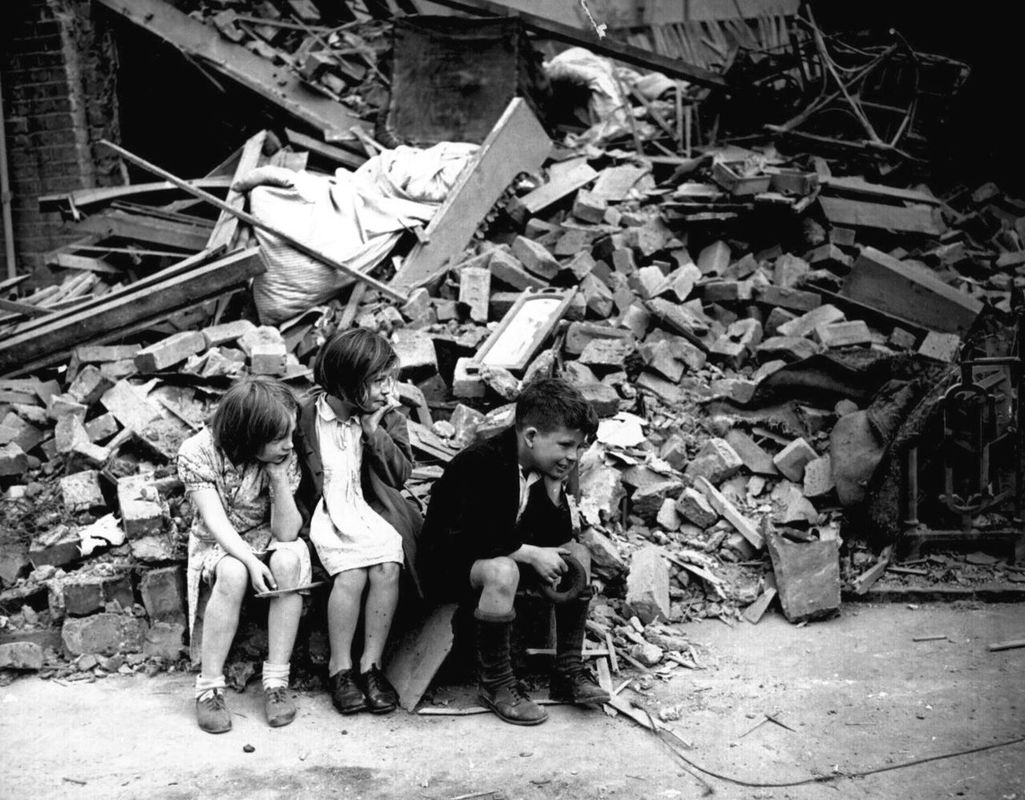APOLOGIES! (June 28, 2021) I incorrectly set up the email forwarding for the americankriegsenkel@gmail.com account and had not been receiving notifications. Embarrassing! It's fixed and I'm responding to those who have taken the time to write to me since ... gulp... 2017. Also, in the coming weeks I'll be revamping the resources section, and adding a blog. for occasional updates. Stay tuned.
The past is never dead. It's not even past.
(William Faulkner)
What's a Kriegsenkel?
Although this site is aimed at an English-speaking audience, I've chosen to keep the word "Kriegsenkel" because there is no succinct equivalent expression in English. Kriegsenkel literally means "war grandchild." (Click here for pronunciation.)
From the German website Kriegsenkel.de:
The term "Kriegsenkel" refers to the relatives of the high birthrate years in Germany, the so-called Babyboomers, who were born from 1960 to 1975. They are often the children of the so-called "war children" who were born between 1928 and 1946, and who had been children during the Nazi era, the Second World War, and the immediate post-war period. The parents of the Kriegsenkel were not soldiers or military auxiliaries, and thus were not actively involved in fighting.
For some years it has been known that traumatization in connection with war and violence can radiate and damage the successor generations. People sometimes carry within themselves fragments of events that took place years and decades before their birth.
The term "Kriegsenkel" was probably used for the first time in the autobiographical narrative "Ich, Rabentochter" by the author Katharina Ohana, which appeared in 2006. The term found wider usage it the publication of "We Children of Wars" (2008) by Anne-Ev Ustorf and "Kriegsenkel" (2009) by Sabine Bode.
From the German website Kriegsenkel.de:
The term "Kriegsenkel" refers to the relatives of the high birthrate years in Germany, the so-called Babyboomers, who were born from 1960 to 1975. They are often the children of the so-called "war children" who were born between 1928 and 1946, and who had been children during the Nazi era, the Second World War, and the immediate post-war period. The parents of the Kriegsenkel were not soldiers or military auxiliaries, and thus were not actively involved in fighting.
For some years it has been known that traumatization in connection with war and violence can radiate and damage the successor generations. People sometimes carry within themselves fragments of events that took place years and decades before their birth.
The term "Kriegsenkel" was probably used for the first time in the autobiographical narrative "Ich, Rabentochter" by the author Katharina Ohana, which appeared in 2006. The term found wider usage it the publication of "We Children of Wars" (2008) by Anne-Ev Ustorf and "Kriegsenkel" (2009) by Sabine Bode.
Vergangenheitsbewältigung
Another German term to know: Vergangenheitsbewältigung (hear pronunciation). Broken down:
Together, it is the process of coming to terms with the past. From Wikipedia:
Vergangenheitsbewältigung (German: "struggle to overcome the [negatives of the] past") is a German term describing processes that since the late 20th century have become key in the study of post-1945 German literature, society, and culture. The German Duden lexicon defines Vergangenheitsbewältigung as "public debate within a country on a problematic period of its recent history—in Germany on National Socialism, in particular"— where "problematic" refers to traumatic events that raise sensitive questions of collective culpability. In Germany, and originally, the term refers to embarrassment about and often remorse for Germans' complicity in the war crimes of the Wehrmacht, Holocaust, and related events of the early and mid-20th century, including World War II. In this sense, the word can refer to the psychic process of denazification.
- Die Vergangenheit = the past.
- Die Bewältigung = (The process of) Coming to terms with, overcoming, coping with (verb bewältigen – to cope with/overcome)
Together, it is the process of coming to terms with the past. From Wikipedia:
Vergangenheitsbewältigung (German: "struggle to overcome the [negatives of the] past") is a German term describing processes that since the late 20th century have become key in the study of post-1945 German literature, society, and culture. The German Duden lexicon defines Vergangenheitsbewältigung as "public debate within a country on a problematic period of its recent history—in Germany on National Socialism, in particular"— where "problematic" refers to traumatic events that raise sensitive questions of collective culpability. In Germany, and originally, the term refers to embarrassment about and often remorse for Germans' complicity in the war crimes of the Wehrmacht, Holocaust, and related events of the early and mid-20th century, including World War II. In this sense, the word can refer to the psychic process of denazification.
